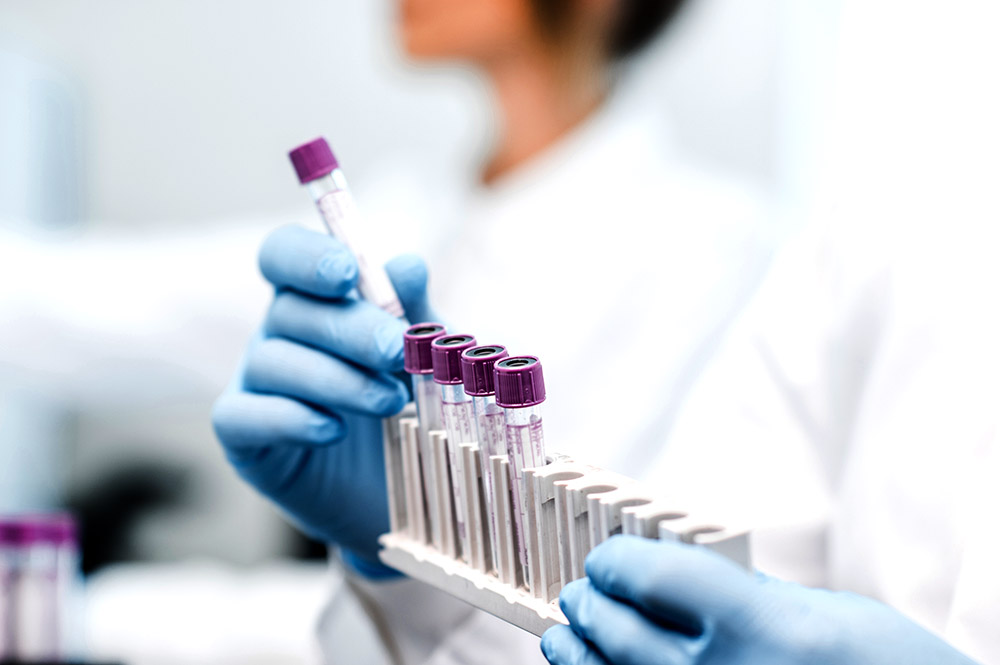Unlocking the Potential of Liquid Biopsy: A Breakthrough in Pancreatic Cancer Detection

Pancreatic cancer, known for its aggressive nature and late-stage diagnosis, poses challenges in effective treatment and management. However, recent advancements in medical research may offer a glimmer of hope for early detection and improved outcomes for patients.
Why is early detection important?
People who have pancreatic cancer diagnosed in the early stages of disease have better outcomes. If pancreatic cancer is detected before it has grown too large or spread to other areas in the body there are more treatment options available, including surgery.
Only around 10% of pancreatic cancers are diagnosed before they spread. However, if detected early, long-term (5 years +) survival rates are 10 times higher than if the cancer has already spread. It is important to remember that while survival statistics give an indication of prognosis on a population level scale, they cannot describe individual cases.(2,3)
Early detection also provides greater time and opportunity for patients to participate in research, accelerating discovery and treatment options.
Navigating Early Diagnosis With Exosome-Based Liquid Biopsy for Pancreatic Cancer
At the forefront of this progress is an investigational exosome-based liquid biopsy, demonstrating promise in detecting pancreatic cancer at its earliest stages. Presented at the American Association for Cancer Research (AACR) Annual Meeting 2024, the findings reveal an impressive accuracy rate of 97% for identifying stage 1-2 pancreatic cancers when combined with the biomarker CA 19-9.
According to Ajay Goel, PhD, senior author of the study and chair of the Department of Molecular Diagnostics and Experimental Therapeutics at City of Hope, early diagnosis is paramount in enhancing patient survival rates. With pancreatic cancer's grim prognosis, characterized by low survival rates, the urgency for innovative diagnostic tools cannot be overstated. "It is of utmost importance to diagnose patients as early as possible so they have the opportunity to receive potentially curative surgery and treatment," Goel emphasized.
Caiming Xu, MD, PhD, a postdoctoral fellow in Goel's research group, highlighted the challenges associated with early detection due to the disease's nonspecific symptoms and the anatomical location of the pancreas. However, the development of an exosome-based liquid biopsy offers a promising solution. By analyzing exosomes, specialized vesicles released by cancerous cells, researchers identified unique microRNAs associated with pancreatic cancer. This innovative approach, combined with cell-free DNA markers, showed promising results for detecting the disease. Michelle Stewart, CEO of Pankind, The Australian Pancreatic Cancer Foundation, underscored the significance of these findings, stating, "The results of this study offer hope for those who may develop pancreatic cancer in the future. The potential of the exosome-based liquid biopsy extends beyond its diagnostic capabilities, providing a beacon of hope for early intervention and personalised treatment strategies.”
Why is pancreatic cancer hard to diagnose?
- The symptoms of pancreatic cancer are not always obvious, they come and go and can change over time.
- The pancreas is located deep within the body, so it can be hard to see or feel a tumour from a physical exam.
- Current diagnostic tests do not always detect small, pre-cancerous or early-stage tumours.
- While there are several diagnostic tests available, there is not yet a single standard test.
- There are no proven biological markers that can be used to determine if you have pancreatic cancer.
- As pancreatic cancer is a less common cancer, population-wide screening programs are not recommended, and researchers are yet to determine conclusively which are the best sections of the population to screen.
A Step Forward in Improving Lives Affected by Pancreatic Cancer
While further research is needed to validate these findings and address certain limitations, such as the inclusion of diverse population groups, the implications of this study are profound. With continued advancements in medical science and collaborative efforts, the journey toward finding a transformative approach to pancreatic cancer takes an interesting step forward. As we navigate the complexities of this disease, the pursuit of early detection methods may offer promise for improving patient outcomes and transforming lives affected by the disease.
About PanKind
PanKind, The Australian Pancreatic Cancer Foundation, is exclusively dedicated to pancreatic cancer, with a mission to dramatically increase survival rates and quality of life for those impacted by the disease.
MORE ON PANCREATIC CANCER RESEARCH
- PBAC reviews new treatment
- Pancreatic Cancer Care: Promising Results of Investigational mRNA Vaccine
- Pancreatic Cancer Therapy: Opdivo Shows Promise in Neoadjuvant Treatment
Sign up to our newsletter and follow us on facebook, instagram, linkedin and twitter to keep up-to-date with the latest news, upcoming events, personal stories and exciting breakthroughs.



